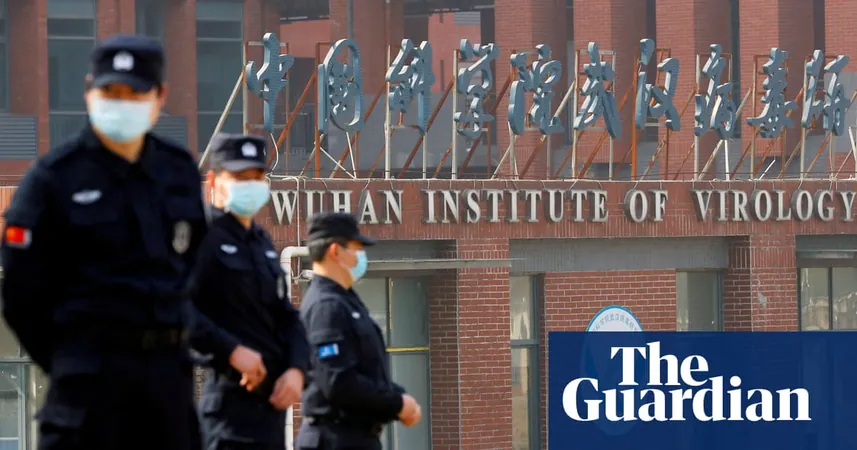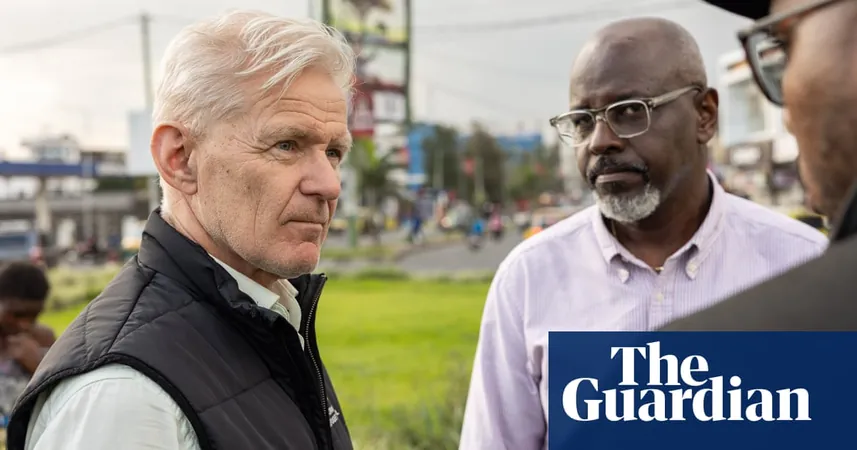
WHO Urges China to Disclose Covid-19 Origins Data Five Years After Pandemic Outbreak
2024-12-31
Author: Wei
WHO Urges China to Disclose Covid-19 Origins Data Five Years After Pandemic Outbreak
In a poignant appeal, the World Health Organization (WHO) has once again called on China to provide crucial data and access that could shed light on the origins of Covid-19, now five years after the unprecedented pandemic that devastated global health and economies.
In a statement released on Monday, the WHO underscored the urgency of this request, stating, “We continue to call on China to share data and access so we can understand the origins of Covid-19. This is a moral and scientific imperative.” The pandemic has claimed the lives of over seven million individuals worldwide, disrupted economies, and placed immense strain on healthcare systems.
The organization emphasized that without transparency and cooperation among nations, the world will remain ill-equipped to prevent and manage future epidemics. This highlights a shared responsibility in global health readiness, which has become increasingly vital in a world that has witnessed the chaos of Covid-19.
China's response was swift and firm, with its foreign ministry asserting that the country had been forthcoming with its information regarding the virus. Spokeswoman Mao Ning stated, “Five years ago... China immediately shared epidemic information and viral gene sequences with the WHO and the international community. Without holding anything back, we shared our prevention, control, and treatment experience, making a huge contribution to the international community’s pandemic-fighting work.”
The WHO reflected on the early days of the pandemic, recalling how their China office on December 31, 2019, first noted media reports regarding cases of "viral pneumonia" in Wuhan. Over the subsequent months and years, Covid-19 dramatically altered daily life and public health across the globe.
As the pandemic's anniversary approaches, the WHO urges the world to remember those whose lives were irrevocably changed due to the virus, to acknowledge ongoing struggles with Covid-19 and Long Covid, and to honor the healthcare workers who made significant sacrifices during this crisis. The organization stressed the need to draw lessons from the pandemic to better prepare for future health challenges.
Recently, WHO Director-General Tedros Adhanom Ghebreyesus discussed whether the world is better prepared for future pandemics. His mixed response—“the answer is yes, and no”—revealed a complex landscape of progress and lingering vulnerabilities. He acknowledged that although the world has made strides in learning from the pandemic, many of the same weaknesses that allowed Covid-19 to spread remain.
In December 2021, following the fears raised by Covid-19’s impact, nations began drafting an international accord focused on pandemic prevention and response. Nonetheless, negotiations among WHO’s 194 member states are facing obstacles, particularly regarding equitable access to emerging pathogen data and benefits such as vaccines. A significant divide exists between wealthy nations, which have robust pharmaceutical sectors, and lower-income countries, which are apprehensive about being overlooked in future global health crises.
With negotiations underway, key issues remain unresolved, notably the timeline for sharing data on emerging pathogens and the distribution of benefits derived from such information. The deadline for reaching an agreement is May 2025, a critical target as the world gears up for the inevitability of future pandemics.
As calls for transparency grow louder, the eyes of the global community remain fixed on China, underlining the essential role of international cooperation in safeguarding public health for generations to come.



 Brasil (PT)
Brasil (PT)
 Canada (EN)
Canada (EN)
 Chile (ES)
Chile (ES)
 Česko (CS)
Česko (CS)
 대한민국 (KO)
대한민국 (KO)
 España (ES)
España (ES)
 France (FR)
France (FR)
 Hong Kong (EN)
Hong Kong (EN)
 Italia (IT)
Italia (IT)
 日本 (JA)
日本 (JA)
 Magyarország (HU)
Magyarország (HU)
 Norge (NO)
Norge (NO)
 Polska (PL)
Polska (PL)
 Schweiz (DE)
Schweiz (DE)
 Singapore (EN)
Singapore (EN)
 Sverige (SV)
Sverige (SV)
 Suomi (FI)
Suomi (FI)
 Türkiye (TR)
Türkiye (TR)
 الإمارات العربية المتحدة (AR)
الإمارات العربية المتحدة (AR)